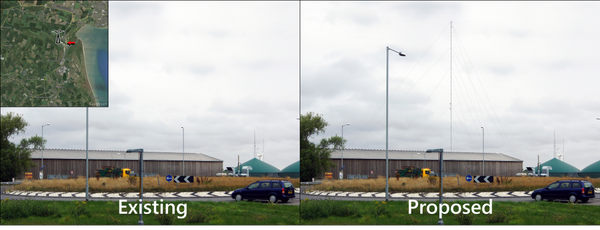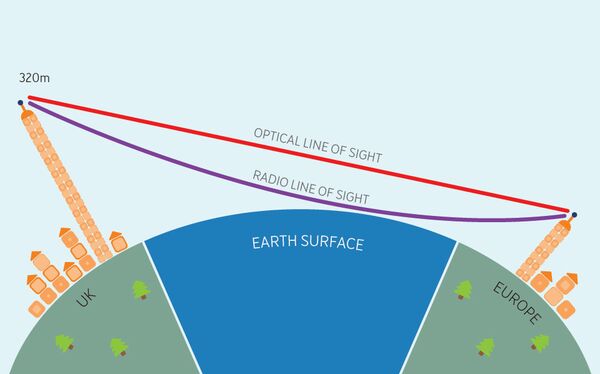Two companies have plans to build the structures near Dover, in the British county of Kent, with the towers designed to create a high-speed trading network between financial institutions in the UK and Europe.
As part of the submissions, telecom company Vigilant Global put forward plans to build a 320-meter tower that would allow for a "completely unobstructed" path for radio waves into Europe.

If the application is approved it will be the sixth-tallest structure in the UK, taller than Britain's tallest building, the Shard in London.
However Vigilant Global's chances of being given permission to build the tower appear to be slim following widespread community opposition.
According to a report in the Financial Times, local authorities in Kent said the project should be rejected as the towers would have an impact on the "heritage significance, landscape character and appearance" of the local area.
This argument justifying the Vigilant Global mast in Richborough is a little bit bof bof, right? pic.twitter.com/M41eUs8fIB
— Alexandre Laumonier (@SniperInMahwah) December 13, 2016
The debate comes amid concern over the UK's post-Brexit finance industry, with fears many major traders and firms will leave Britain for the EU unless a special arrangement can be organized.
While opponents of the project say the construction of the towers will only create an eyesore with limited community benefits, supporters argue that it will give the UK's finance industry a much-needed boost and ease the concerns of firms ahead of Brexit negotiations.
A decision on the issue is expected this week with Dover Country Council meeting on Thursday, January 26.
High-Frequency Trading
The push to build these huge towers in the British countryside comes amid a boom in high-frequency trading (HFT).
HFT sees high-powered computers carrying out millions of trades per second, with the aim to make small gains on each trade.
@vRobM I find the practice of High Frequency Trading troubling to the point and I wonder if laws/regulations to slow it down are a good idea
— Landon Curt Noll (@landonnoll) January 23, 2017
In order to facilitate these super-fast transfers, companies are increasingly looking to use radio towers to transmit the date using microwaves, with a major trading firm in 2014 purchasing a disused NATO transmission tower in Belgium with the aim of developing microwave links between London and Frankfurt.
To work effectively, these towers need to be as tall as possible to avoid optical obstructions, which is why the planned towers in Dover are taller than 300 meters.



